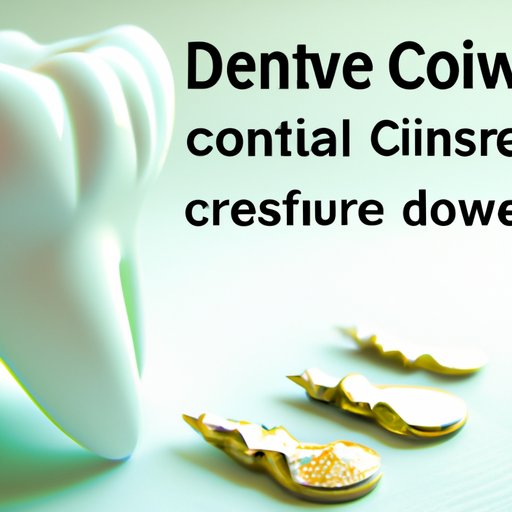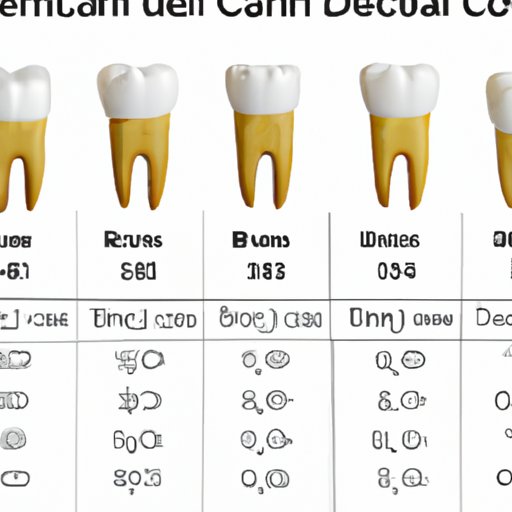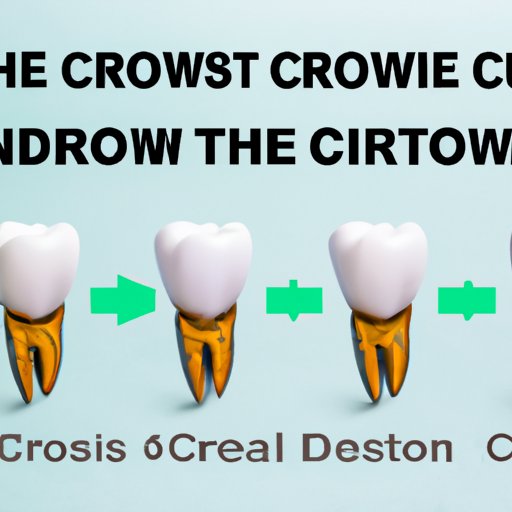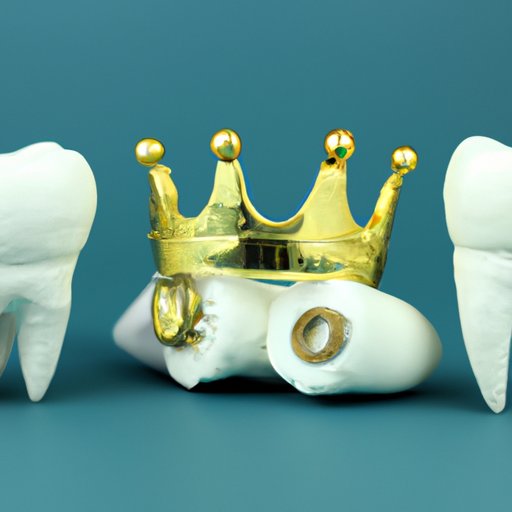Introduction
Dental crowns are a popular restoration option for improving the appearance, strength, and function of damaged or decayed teeth. It is important to understand the cost of dental crowns before committing to treatment, as they can be a significant financial investment. This article will explore the different types of dental crowns, the cost breakdown of each type, and the factors that impact the overall cost.

Exploring the Cost of Dental Crowns: A Comprehensive Guide
When considering the cost of a dental crown, it is important to consider the type of crown being used. There are several different types of crowns available, each with its own unique cost. The most common types of crowns are porcelain-fused-to-metal (PFM), all-porcelain, and all-ceramic. Each type of crown has its own unique advantages and disadvantages, which will impact the overall cost of the procedure.

A Comparison of Different Types of Dental Crowns and Their Costs
Porcelain-fused-to-metal crowns are the most common type of crown and are typically the most affordable option. These crowns are made of a metal base that is fused to porcelain, providing both strength and aesthetic appeal. The average cost of PFM crowns ranges from $1,000 to $1,500 per tooth. All-porcelain crowns are also popular and provide a more natural-looking finish than PFM crowns. These crowns tend to be more expensive, ranging from $1,200 to $2,000 per tooth. All-ceramic crowns provide the most natural-looking finish but are also the most expensive, costing between $1,400 and $2,400 per tooth.

Cost Breakdown of Dental Crowns: What You Need to Know
In addition to the type of crown being used, there are other factors that can affect the cost of dental crowns. These factors include the location of the dentist’s office, the complexity of the procedure, and any additional treatments that may be required. For example, if the patient needs a root canal prior to receiving the crown, this will add to the overall cost of the procedure. Additionally, some dentists may offer discounts on their services, so it is always a good idea to shop around for the best price.
How Much Does a Tooth Crown Cost? A Look at the Different Factors
The location of the dentist’s office can have a significant impact on the cost of a dental crown. Generally, urban areas tend to have higher prices than rural areas. Additionally, some states have higher costs than others due to the cost of living, cost of materials, and other factors. It is important to research the cost of dental care in your area before committing to a particular dentist.
The Impact of Insurance Coverage on the Cost of Dental Crowns
Insurance coverage can also play an important role in determining the cost of dental crowns. Most dental insurance plans cover a portion of the cost of the procedure, depending on the plan and the type of crown being used. It is important to understand your insurance coverage before committing to a particular type of crown, as this can save you money in the long run.
Conclusion
The cost of a dental crown can vary significantly depending on the type of crown being used, the location of the dentist’s office, and the patient’s insurance coverage. Porcelain-fused-to-metal crowns are typically the most affordable option, ranging from $1,000 to $1,500 per tooth. All-porcelain and all-ceramic crowns are more expensive, ranging from $1,200 to $2,400 per tooth. Additionally, other factors such as the complexity of the procedure, additional treatments required, and insurance coverage can affect the overall cost of the procedure. To find the most affordable dental care, it is important to research local dentists, compare prices, and understand your insurance coverage.
(Note: Is this article not meeting your expectations? Do you have knowledge or insights to share? Unlock new opportunities and expand your reach by joining our authors team. Click Registration to join us and share your expertise with our readers.)
